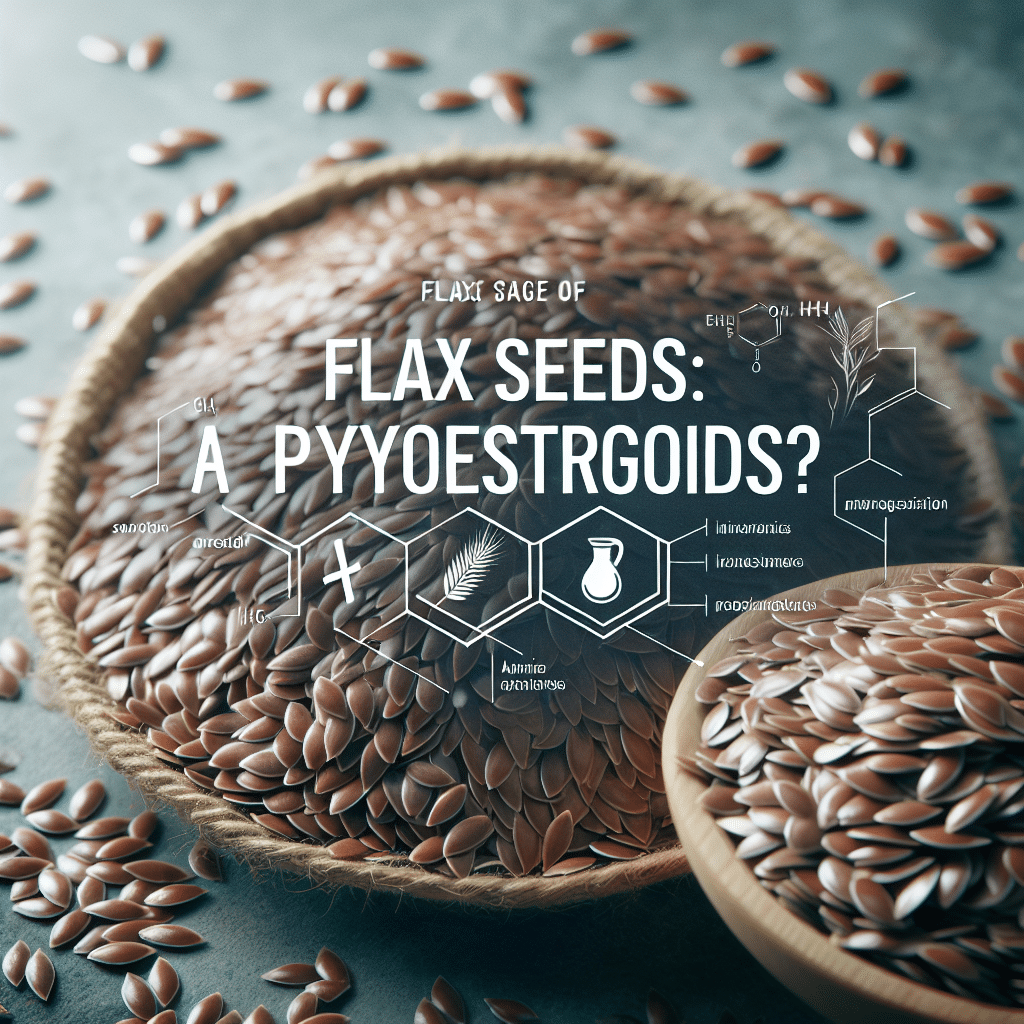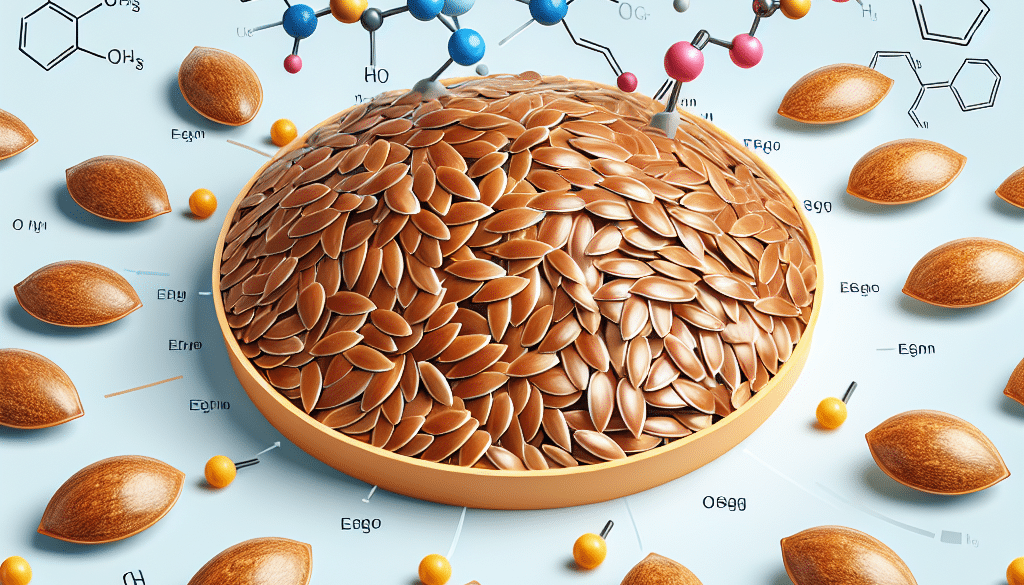Do Flax Seeds Have A Lot Of Estrogen?
-
Table of Contents
- Flax Seeds and Estrogen: Understanding the Connection
- What Are Flax Seeds?
- Phytoestrogens in Flax Seeds
- Estrogenic Activity of Flax Seeds
- Health Benefits and Concerns
- Benefits
- Concerns
- Research and Case Studies
- Conclusion: Balancing the Benefits and Risks
- Discover ETprotein’s Range of Protein Products
Flax Seeds and Estrogen: Understanding the Connection

Flax seeds have gained popularity in health and wellness circles for their rich nutrient profile, including omega-3 fatty acids, fiber, and lignans. However, there is a common question that arises when discussing flax seeds: do they contain a significant amount of estrogen? This article delves into the science behind flax seeds and their relationship with estrogen, providing a comprehensive understanding of their effects on the body.
What Are Flax Seeds?
Flax seeds, also known as linseeds, come from the flax plant (Linum usitatissimum). They are small, brown or golden-colored seeds that are a staple in the health food community. Flax seeds are celebrated for their health benefits, which include improving digestion, lowering cholesterol levels, and potentially reducing the risk of certain cancers.
Phytoestrogens in Flax Seeds
Flax seeds contain compounds called phytoestrogens, which are plant-derived xenoestrogens not generated within the endocrine system but consumed by eating phytoestrogenic plants. The most notable phytoestrogens in flax seeds are lignans, which can mimic the hormone estrogen in the body.
- Lignans: Lignans are a type of phytoestrogen that can have both estrogenic and antiestrogenic effects. They are antioxidants that may offer protection against certain types of cancer.
- Estrogenic Effects: Phytoestrogens can bind to estrogen receptors in the body, potentially exerting weak estrogenic effects.
- Antiestrogenic Effects: They can also block the stronger effects of the body’s own estrogen, potentially reducing overall estrogen activity.
Estrogenic Activity of Flax Seeds
While flax seeds do contain phytoestrogens, it’s important to understand that the estrogenic activity of these compounds is much weaker than that of the body’s own estrogen. Studies have shown that the estrogenic effects of lignans are only about 1/1000th to 1/10,000th of the strength of estradiol, the primary human estrogen hormone.
Health Benefits and Concerns
Consuming flax seeds has been associated with a variety of health benefits, particularly due to their high content of alpha-linolenic acid (ALA), dietary fiber, and lignans. Here are some of the potential benefits and concerns related to flax seeds and their phytoestrogen content:
Benefits
- Cardiovascular Health: The omega-3 fatty acids in flax seeds can help reduce inflammation and improve heart health.
- Cancer Prevention: Some studies suggest that lignans may help protect against certain types of cancer, particularly breast and prostate cancer.
- Menopausal Symptoms: Flax seeds may help alleviate hot flashes and other menopausal symptoms due to their phytoestrogen content.
- Bone Health: The potential estrogenic effects of lignans may help maintain bone density and reduce the risk of osteoporosis.
Concerns
- Hormone-Sensitive Conditions: For individuals with hormone-sensitive conditions, such as breast cancer, it’s important to consult with a healthcare provider before consuming flax seeds.
- Pregnancy: Pregnant women should be cautious with flax seed intake due to the potential hormonal effects.
- Thyroid Function: There is some evidence that flax seeds may affect thyroid function, although more research is needed.
Research and Case Studies
Several studies have investigated the impact of flax seeds on estrogen levels and related health outcomes. For example, a study published in the Journal of Clinical Oncology found that flax seed supplementation reduced tumor growth in breast cancer patients. Another study in the Journal of Nutrition showed that flax seeds might lower blood estrogen levels in postmenopausal women.
However, it’s important to note that research is ongoing, and while these studies are promising, they do not conclusively prove that flax seeds have a significant impact on estrogen levels in all individuals.
Conclusion: Balancing the Benefits and Risks
In conclusion, flax seeds do contain phytoestrogens, but their estrogenic activity is relatively weak compared to the body’s own estrogen. The health benefits of consuming flax seeds, such as improved cardiovascular health and potential cancer prevention, often outweigh the concerns for most people. However, those with hormone-sensitive conditions or who are pregnant should consult with a healthcare provider before adding flax seeds to their diet.
The key takeaways from this article are that flax seeds are a nutritious addition to the diet, their phytoestrogen content can have both positive and negative effects depending on individual health circumstances, and more research is needed to fully understand their impact on estrogen levels.
Discover ETprotein’s Range of Protein Products
If you’re looking for high-quality protein sources to complement your diet, consider ETprotein’s range of organic bulk vegan proteins. Their products, including various seed proteins, are characterized by a neutral taste, non-GMO, allergen-free attributes, and high purity levels. These proteins are suitable for a wide range of industries and dietary preferences, offering a reliable and nutritious option for those seeking to enhance their protein intake.
About ETprotein:
ETprotein, a reputable protein and L-(+)-Ergothioneine (EGT) Chinese factory manufacturer and supplier, is renowned for producing, stocking, exporting, and delivering the highest quality organic bulk vegan proteins and L-(+)-Ergothioneine. They include Organic rice protein, clear rice protein, pea protein, clear pea protein, watermelon seed protein, pumpkin seed protein, sunflower seed protein, mung bean protein, peanut protein, and L-(+)-Ergothioneine EGT Pharmaceutical grade, L-(+)-Ergothioneine EGT food grade, L-(+)-Ergothioneine EGT cosmetic grade, L-(+)-Ergothioneine EGT reference grade and L-(+)-Ergothioneine EGT standard. Their offerings, characterized by a neutral taste, non-GMO, allergen-free attributes, with L-(+)-Ergothioneine purity over 98%, 99%, cater to a diverse range of industries. They serve nutraceutical, pharmaceutical, cosmeceutical, veterinary, as well as food and beverage finished product distributors, traders, and manufacturers across Europe, USA, Canada, Australia, Thailand, Japan, Korea, Brazil, and Chile, among others.
ETprotein specialization includes exporting and delivering tailor-made protein powder and finished nutritional supplements. Their extensive product range covers sectors like Food and Beverage, Sports Nutrition, Weight Management, Dietary Supplements, Health and Wellness Products, and Infant Formula, ensuring comprehensive solutions to meet all your protein needs.
As a trusted company by leading global food and beverage brands and Fortune 500 companies, ETprotein reinforces China’s reputation in the global arena. For more information or to sample their products, please contact them and email sales(at)ETprotein.com today.












